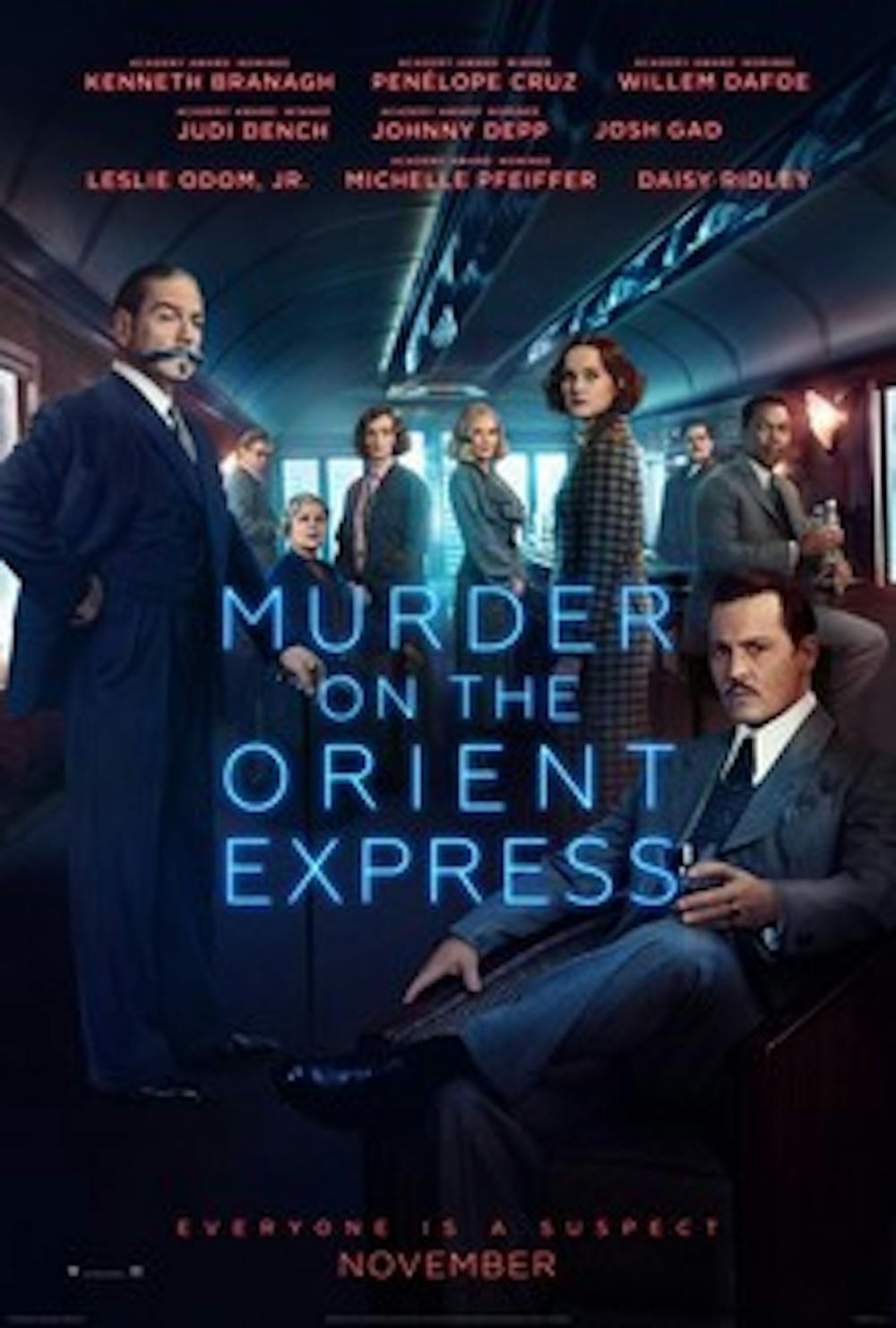Unfortunately, “Murder On the Orient Express” sounds more fun than it is. Based on the 1934 Agatha Christie novel of the same name, the film had no good reason to fail. It had a stellar cast, stayed relatively close to the novel and made important changes to reflect the social and racial issues of the time. But it just didn’t work.
World-famous detective Hercule Poirot (Kenneth Branagh) is off-duty as he travels across Europe on the Orient Express. When suspicious American businessman Mr. Ratchett (Johnny Depp) is murdered in the night, the young director of the train line (Tom Bateman) appeals to Poirot for help.
As an avalanche blocks the way of the Orient Express, Poirot is trapped with 13 passengers, one of which he knows must be the murderer. Poirot goes on to discover secrets about Dr. Arbuthnot (Leslie Odom Jr.), Princess Dragomiroff (Dame Judi Dench), Mrs. Hubbard (Michelle Pfeiffer), Pilar Estravados (Penélope Cruz), Mary Debenham (Daisy Ridley), Masterman (Sir Derek Jacobi), Countess Andrenyi (Lucy Boyton) and Hector MacQueen (Josh Gad), as well as other passengers. Didn’t get all those names? Neither did anyone watching the movie.
Part of what makes this a compelling novel is what makes it a terrible movie — none of the 13 suspects receives ample screen time, making character development impossible and remembering faces and names extremely difficult. When Poirot uncovers a clue, the audience is less surprised and more confused as they are left trying to remember the face and name of the character being discussed.
Furthermore, Branagh’s portrayal of Poirot is almost indistinguishable from Sherlock Holmes. If his mustache were a little thicker and his French accent a little thinner, Poirot would literally be Holmes, the eccentric detective who can solve any case by scanning the objects in the room. Perhaps Branagh was trying to ease the audience into acceptance of Poirot by making him more accessible and more like a character the world already knows and loves.
Christie herself once compared Poirot to Holmes, saying, “[Early on] I was still writing in the Sherlock Holmes tradition — eccentric detective, stooge assistant, with a Lestrade-type Scotland Yard detective, Inspector Japp."
This, however, does not give Christie credit for her ability to develop Poirot from a stock character into an incredibly realistic and complex person. Branagh receives ample screen time — at the expense of other characters — and still fails to convincingly bring Christie’s character to life.
Poirot never gained the international fame that Arthur Conan Doyle’s Holmes did, and this movie was Hollywood’s chance to make him a household name. The ending of “Murder on the Orient Express” sets up a sequel based on Christie’s work “Death on the Nile,” although the sequel is not yet officially in the works.
It’s a shame, but the plot of this mystery novel just doesn’t lend itself to the feature film format. A mini-series would have suited the work much better — the plot twists would have more cachet if the audience actually knew who they were about.





